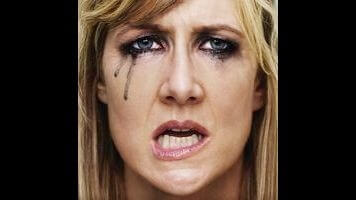Enlightened: Enlightened

This fall, we’ve got so many writers who’ve seen these pilots that we thought getting two takes on each show would be helpful to you. The first review is the “official” TV Club review, and the grade applies to it. But we’ve also found another reviewer to offer their own take on the program. Today, Erik Adams, who’ll review the show week to week, and Meredith Blake talk about Enlightened.
Enlightened debuts tonight at 9:30 p.m. Eastern on HBO.
Meredith: So I thought I’d dive right in and say that, so far at least, I am loving Enlightened. The series is performing a really delicate balancing act, and a huge amount of the credit for that goes to Laura Dern. You never doubt that her character, Amy, is genuinely trying to get to a better place in her life and to channel her rage in a more productive manner, yet you can also see what a manipulative and irrational person she is. Somehow, these two sides to her personality come together cohesively. I’m hardly the first person to point out how fantastic Laura Dern is, but so be it: I was blown away by how Dern is able to keep Amy on this knife’s edge between maniacal optimism and seething anger, and there’s no telling which direction she might go at any moment. It’s exhilarating to watch.
I’m also impressed with how respectfully Amy is treated. So often in movies and TV shows with a satirical edge, there’s a kind of disdain for the characters, but I don’t see evidence of that here. Enlightened could easily have played Amy’s new hippie-dippy outlook for laughs, but it doesn’t. There were a few moments when I thought the show might veer in this direction—particularly in the scene when Amy returns to her office for the first time after her stint at a Hawaiian treatment center—but it didn’t. The brief, economical sequence during which we see Amy during her treatment does, in fact, seem idyllic, tranquil. You don’t blame Amy for wanting to get back to that place, literally or metaphorically. It’s so easy to make fun of all the New Age-y stuff, and Enlightened handles it with humor and self-awareness, but also with a measure of respect.
I guess you could say I like it. How about you?
Erik: You’re coming to Enlightened as a fan of Laura Dern; I’m here as a supporter of the series’ co-creator, Mike White. White has a spotty filmography, but his work in television (he wrote and produced for Dawson’s Creek and Freaks And Geeks and created the acclaimed, but short-lived, soap Pasadena) has been consistently good. White’s in his wheelhouse when he’s writing for square pegs and characters in the midst of existential crises—and Amy is both of those things. White and Dern sketch a nearly complete picture of Amy by the end of the pilot, a difficult feat for 30 minutes of television. Given the fact that they share a creator credit on Enlightened, it’s fair to assume they had much about the character worked out before White even began work on the script. In that way, she’s The Bride to White and Dern’s Tarantino-Thurman pairing—only I suspect Amy’s path to getting what she wants will be considerably less bloody than that renegade assassin. (As evidenced by the pilot, some Bride-like roaring and rampaging certainly aren’t out of the question, however.)
I prefer White when he’s working a little broader, but Enlightened comes close to hitting the sweet spot between maudlin dramedy and cutting satire. Helping achieve this is the framing device introduced in the pilot, where Amy states and restates the theme of the episode through, say, the teachings of her pricy stay at Open Air or a personal philosophy cobbled together from her library of self-help books. It’s one of the more mawkish elements of the series, but the repetition gives these moments of voiceover narration a mantra-like quality which gibes with Enlightened’s meditative qualities. It’s interesting that you chose to use the term “exhilarating” in reference to Dern’s performance, Meredith—the show is so deliberately paced in the three episodes I’ve watched so far that little about the show makes me want to describe it in such lively terms. Of course, this type of low-key, slow-simmering plotting is a distinctive feature of White’s work, so it comes with the territory.
Amy’s non-traditional methods of healing are put in constant contrast with the work of her employer, Abaddon Industries, a massive conglomerate that has its hands in “health and beauty” and also runs its own chain of pharmacies. (Religious scholars and anyone who knows how to work Wikipedia will note that the biblical Abaddon is both “a place of destruction” and a physical manifestation of that destruction—so there’s a clue as to the company’s true nature.) The company gives me pleasant flashbacks to the appreciably more cartoonish corporation at the center of Better Off Ted (in its frighteningly wide influence, utter facelessness, and cutthroat corporate culture), but it also represents the other well-developed aspect of the pilot. In the world of Enlightened, just like our own, people seek out any number of solutions to solve what is wrong (or what they perceive is wrong) with their bodies, minds, and souls. Amy’s methods have been previously mentioned; her mother, meanwhile, spends hours in her garden in an attempt to deal with the death of her husband and her utter disappointment with Amy. In one of the sparsely dealt laughs of the pilot, it’s revealed that Amy’s ex-husband (Luke Wilson) casually dulls the pain with a few lines of cocaine. It’s a resonant theme, and it’s looking to be the series’ main source of momentum going forward, as Amy seeks to heal herself and the world around her—with varying levels of success and failure.








































